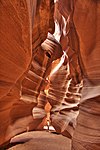File:Piles of Salt Salar de Uyuni Bolivia Luca Galuzzi 2006 a.jpg
Appearance

Size of this preview: 800 × 528 pixels. Other resolutions: 320 × 211 pixels | 640 × 422 pixels | 1,024 × 676 pixels | 1,280 × 845 pixels | 2,000 × 1,320 pixels.
Original file (2,000 × 1,320 pixels, file size: 892 KB, MIME type: image/jpeg)
| This is a featured picture, which means that members of the community have identified it as one of the finest images on the English Wikipedia, adding significantly to its accompanying article. If you have a different image of similar quality, be sure to upload it using the proper free license tag, add it to a relevant article, and nominate it. |
| This image was selected as picture of the day on the English Wikipedia for July 29, 2007. |
File history
Click on a date/time to view the file as it appeared at that time.
| Date/Time | Thumbnail | Dimensions | User | Comment | |
|---|---|---|---|---|---|
| current | 07:30, 22 March 2007 |  | 2,000 × 1,320 (892 KB) | Trialsanderrors | {{Information |Description={{en|Piles of Salt on the Salar de Uyuni, Bolivia.}} {{it|Raccolta del sale nel Salar de Uyuni, Bolivia.}} |Source=Photo taken by (Luca Galuzzi) * http://www.galuzzi.it |Date=2006-04-14 |Aut |
File usage
The following 57 pages use this file:
- Architecture of Bolivia
- Dry lake
- Electric car
- Health and environmental effects of battery electric cars
- History of salt
- Human food
- Salar de Uyuni
- Salt
- Sodium chloride
- User:Bobbylon
- User:Centralismo/Userboxes
- User:Daniel Mietchen/Science communication gallery
- User:DirectorP
- User:Einnerst
- User:Gwennie-nyan
- User:Hafspajen/ Pics
- User:Kerowyn
- User:Life in General/Userboxes
- User:Life in General/Userboxes/Desalination
- User:LucaGaluzzi
- User:Mgreason/AboutMe
- User:Murgh/sandbox
- User:OnwardToThePast
- User:Passargea/Favourite pictures/Nature
- User:Princess Bianca
- User:Princess Bianca/Userboxes
- User:Septrillion
- User:Sylvie Liliane du Pont
- User:Tsilbe
- User:Yaakovaryeh/sandbox
- User:Zozoulia
- User talk:Martinevans123/Archive 8
- Wikipedia:Articles for deletion/Log/April Fools' Day 2018
- Wikipedia:Articles for deletion/Salt
- Wikipedia:Featured picture candidates/April-2007
- Wikipedia:Featured picture candidates/Salt mounds, Salar de Uyuni
- Wikipedia:Featured pictures/Places/Landscapes
- Wikipedia:Featured pictures thumbs/06
- Wikipedia:Picture of the day/July 2007
- Wikipedia:Reference desk/Archives/Science/2015 September 24
- Wikipedia:Userboxes/Politics/Ideology/03
- Wikipedia:WikiProject Food and drink/Recognized content
- Wikipedia:WikiProject Food and drink/Showcase
- Wikipedia:WikiProject Food and drink/Showcase/FM
- Wikipedia:WikiProject Food and drink/Showcase/POTD
- Wikipedia:WikiProject Geology/Automated list of recognized content
- Wikipedia:WikiProject Geology/Recognized content
- Wikipedia:Wikipedia Signpost/2007-04-09/Features and admins
- Wikipedia:Wikipedia Signpost/2007-04-09/SPV
- Wikipedia:Wikipedia Signpost/2008-01-21/Pic of the year
- Wikipedia:Wikipedia Signpost/2008-01-21/SPV
- Wikipedia:Wikipedia Signpost/Single/2007-04-09
- Wikipedia:Wikipedia Signpost/Single/2008-01-21
- Template:POTD/2007-07-29
- Template:TAFI Main page/Main page queue/2
- Portal:Geography/Featured picture/2007, week 30
- Portal:Geography/Featured picture archive/2007
Global file usage
The following other wikis use this file:
- Usage on af.wikipedia.org
- Usage on ar.wikipedia.org
- سالار دو أويوني
- ملح الطعام
- ويكيبيديا:صور مختارة/أماكن/مناظر طبيعية
- تاريخ الملح
- ويكيبيديا:ترشيحات الصور المختارة/بحيرة ملحية
- ويكيبيديا:صورة اليوم المختارة/أبريل 2016
- قالب:صورة اليوم المختارة/2016-04-14
- بوابة:مطاعم وطعام/مقالة مختارة
- بوابة:مطاعم وطعام/مقالة مختارة/أرشيف
- بوابة:مطاعم وطعام/مقالة مختارة/2
- ويكيبيديا:صورة اليوم المختارة/يونيو 2017
- قالب:صورة اليوم المختارة/2017-06-25
- ويكيبيديا:صورة اليوم المختارة/يونيو 2019
- قالب:صورة اليوم المختارة/2019-06-05
- هندسة العمارة البوليفية
- ويكيبيديا:صورة اليوم المختارة/يناير 2022
- قالب:صورة اليوم المختارة/2022-01-12
- بحيرة جافة
- طعام الإنسان
- Usage on ast.wikipedia.org
- Usage on av.wikipedia.org
- Usage on ay.wikipedia.org
- Usage on ba.wikipedia.org
- Usage on be.wikipedia.org
- Usage on bn.wikipedia.org
- Usage on br.wikipedia.org
- Usage on ca.wikipedia.org
- Usage on ceb.wikipedia.org
- Usage on crh.wikipedia.org
- Usage on cs.wikipedia.org
View more global usage of this file.





